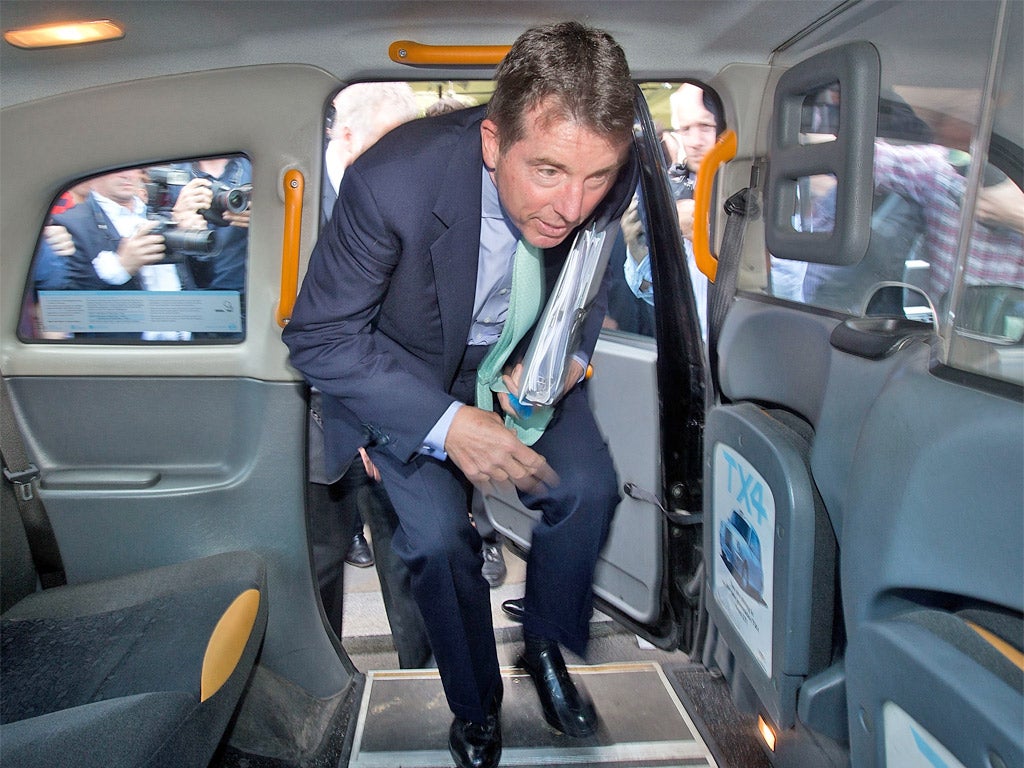There were 14 bad people at Barclays, but I wasn't one of them, says Bob Diamond
Former boss tells MPs that regulators ignored bank's warnings over widespread rate-fixing suspicions

Your support helps us to tell the story
From reproductive rights to climate change to Big Tech, The Independent is on the ground when the story is developing. Whether it's investigating the financials of Elon Musk's pro-Trump PAC or producing our latest documentary, 'The A Word', which shines a light on the American women fighting for reproductive rights, we know how important it is to parse out the facts from the messaging.
At such a critical moment in US history, we need reporters on the ground. Your donation allows us to keep sending journalists to speak to both sides of the story.
The Independent is trusted by Americans across the entire political spectrum. And unlike many other quality news outlets, we choose not to lock Americans out of our reporting and analysis with paywalls. We believe quality journalism should be available to everyone, paid for by those who can afford it.
Your support makes all the difference.Britain's financial regulator was warned that banks were blatantly fixing interest rates in the run-up to the financial crisis but did nothing stop it, the former head of Barclays claimed yesterday.
Bob Diamond told Parliament that Barclays had raised the issue of banks "under-reporting" the true amount they were having to pay to borrow money but were ignored. Asked if regulators "were asleep at the wheel", he said: "There was an issue out there. [It] should have been dealt with". Asked how bodies like the Financial Services Authority (FSA) had responded to the allegations, he replied: "Various levels of acknowledgement but no action."
During his testimony, Mr Diamond, who stepped down as Barclays chief executive on Tuesday, was repeatedly pressed by MPs over whether he had been instructed by the Deputy Governor of the Bank of England, Paul Tucker, to lower Barclays' own Libor rate of borrowing in October 2008.
He insisted he did not believe that to be the case – despite writing a contemporaneous memo suggesting Mr Tucker had told him that his bank's rates "did not always need" to be "as high". "I didn't feel it was an instruction," he explained. "I took it as either a heads-up that you're high or an annoyance that you're high." He also declined to name the "senior" Whitehall officials who had expressed concern at Barclays' borrowing costs, saying he did not want to "speculate" on who they might be. Mr Tucker is expected to be asked to name those who expressed concern over Barclays when he gives evidence to the committee next Tuesday.
Mr Diamond told MPs the rate-rigging scandal needed to be seen in the light of three distinct phases. The first between 2005 and 2007, when a small number of rogue traders at Barclays "lowballed" rates for personal and professional gain; the second between 2007 and 2008 when at an institutional level a number of banks were manipulating rates to make their borrowing costs look lower; and the third at the end of 2008, during the banking bailout.
Mr Diamond claimed that at no stage was he aware that Barclays' employees were manipulating the rates until he received the final report from regulators. "When I got the results of this investigation… I got physically ill. It's reprehensible behaviour. I am sorry, I am disappointed and I am also angry. There is absolutely no excuse for the behaviour and the types of emails that were written," he said.
However, he defended the actions of the bank in co-operating fully with the investigation and suggested it might have been unfairly penalised because it was the first to settle.
"The actions we took when we found out, I think all of them were appropriate, including recognising that we would be out ahead of the pack and helping the regulators. We did not think the focus on this would be as intense in terms of potentially harming our brand and reputation," he said.
Mr Diamond repeatedly apologised for what had gone on at the bank he "loved" and the behaviour of those responsible. "The culture was absolutely opposite of anything that we wanted," he said. "We are serious in Barclays that when people don't behave they have to leave. We missed it here, we missed it with 14 people, and that's wrong."
Afterwards, committee members appeared unconvinced by his testimony. "It was quite difficult to believe that such a successful banker as this, the head of one of the big four banks in Britain, seems to be completely oblivious to the years of the illegality of fiddling Libor," said former Treasury adviser David Ruffley.
The Labour MP, John Mann, added: "He didn't give us any straight answers. He saw nothing, he heard nothing, he knew nothing, but he still managed to get these incredibly large bonuses for being the best banker in the world. If he's so good, he ought to have known what was going on in his own bank with his own staff."
The former Business minister, Pat McFadden, said Mr Diamond's evidence only strengthened the case for a judge-led inquiry. "What's been exposed here raises wider questions. There's a case for a broader inquiry."
In response to Mr Diamond's criticism, the FSA said: "Barclays raised concerns about other banks and did make comments about Barclays' own approach to submitting Libor to external entities including the FSA [in the course of routine liquidity calls]. However the comments made to the FSA did not reflect fully Barclays' conduct."
Join our commenting forum
Join thought-provoking conversations, follow other Independent readers and see their replies
Comments